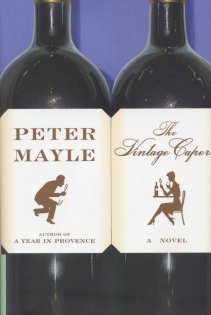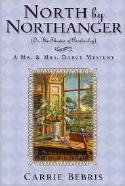Hollywood entertainment lawyer Danny Roth is livid when someone steals his $3 million collection of rare French wines. Of course, he’s insured the wine, and, of course, the insurance company doesn’t want to just hand over that kind of cash without some kind of investigation. So Elena Morales, vice president of claims at the company, assigns the case to a rather unorthodox consultant, Sam Levitt, a former corporate lawyer, criminal, and wine expert.
Sam decides the best place to start is at the beginning: in the case of the wine, that’s where it was made. So he heads to Bordeaux, and Elena finds a French insurance agent who specializes in wine to help him. Sam and Sophie make the rounds of vineyards, looking for clues that can help lead them to the wine, and they find themselves investigating one very rich and influential man — well, more particularly, his wine cellar.
Peter Mayle, author of A Year in Provence, has fun with The Vintage Caper. He takes his time, letting his hero take his time, eating and drinking his way through Paris, Bordeaux and Marseilles. The story is a basic frame on which to hang a lush portrait of a lovely and luscious area of Europe. Even if one isn’t a wine aficionado or has never had a drink of alcohol, the story is still fun, informative and a cheap way to travel to France through an afternoon of reading. It’s not much of a mystery; it is just a light, entertaining caper. Just expect to have a little bit of an appetite for some fine cuisine while reading.
Rated: Moderate, for language. There’s one use of strong language, a few uses of mild and moderate language and a few mild sexual-related references. It could easily be a mild if Mayle hadn’t thrown in that one f-word. He even makes references throughout in dialogue about “unprintable” language. Why he uses one “unprintable” word, then, is beyond me.




